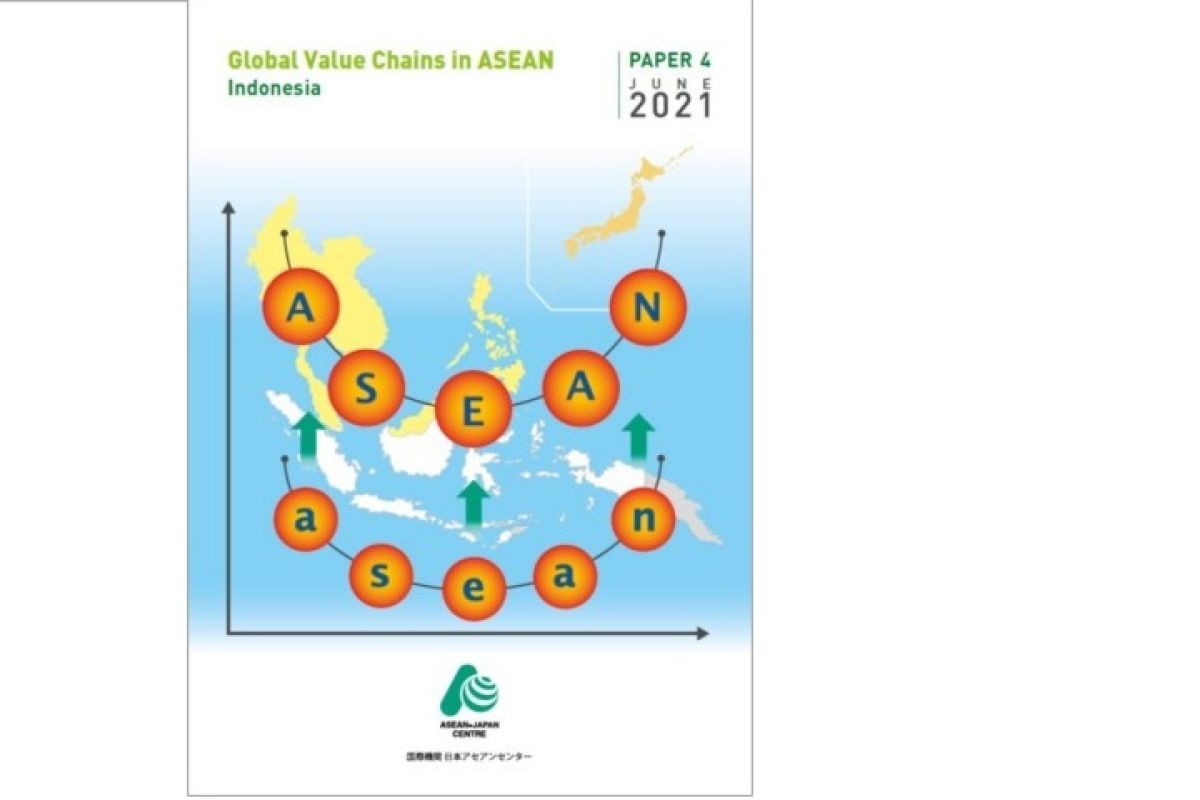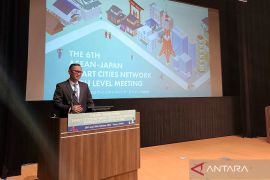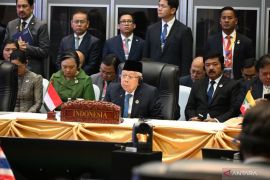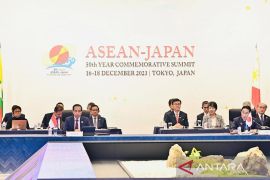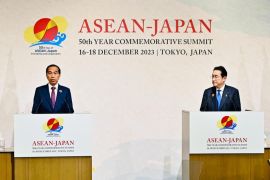“Global Value Chains in ASEAN” on Indonesia is available for download on AJC website
Tokyo--(Antara/Business Wire)- ASEAN-Japan Centre (AJC) issued Paper 4 of the “Global Value Chains in ASEAN” series focusing on Indonesia in June 2021. According to the paper, Indonesia manifested a significant share of domestic value added in exports (DVA) at 88 per cent in 2019; however, this high share of DVA is concentrated in manufacturing activities at the lower tiers of production, which require minimum levels of imported input and foreign technology.
This press release features multimedia. View the full release here: https://www.businesswire.com/news/home/20210803006201/en/
Indonesia is the tenth largest economy in the world with a gross domestic product (GDP) of $1.1 trillion. Despite this, the manufacturing sector accounts for only one-fifth of the total value added created. This shows that the manufacturing sector creates small value despite its size, which is twice the size of the primary sector in terms of output. Compared with other upper middle-income countries such as Malaysia and Thailand, Indonesia has maintained the lower-income level and has the slowest growth in manufacturing value added. The expansion of global value chains (GVC) is a good opportunity to improve the technological capability of indigenous manufacturing firms, which is considered one of the keys to escape the middle-income trap.
Higher GVC participation may induce growth through higher trade volume and greater foreign direct investment (FDI). The paper recommends Indonesia to consider adopting this growth model as a policy framework option. FDI figures show that manufacturing accounted for more than 40 per cent during 2014-2019, and is mostly concentrated in medium-technology manufacturing such as foods, metal and machinery manufacturing. The country must strengthen its local industries and market and strategically promote FDI. Policies that encourage the industrial and technological upgrading of the local economy and enhance human resource development, such as advanced engineering, design, and R&D capabilities are required to drive the country towards a more knowledge-intensive and innovation-driven economy.
The maximization of national economic potential does not automatically follow deeper integration into GVCs. Local actors might not have the capabilities to take advantage of exposure to global production networks because requirements such as compliance with international standards, greater managerial and financial resources, and protection of intellectual property may prevent small and medium-sized enterprises from participating. At the national level, the value-added creation process becomes the key. This is where the national innovation system’s (NIS) role through effective science, technology and innovation (STI) policy is vital in maximizing spillover effects.
A well-planned NIS could be the bridge that could transform foreign technology into indigenous technology in the manufacturing sector. The government needs to prioritize upgrading the indigenous manufacturing firms within GVCs, particularly at the medium-low technology and medium-high technology levels, as most indigenous manufacturing firms remain in low-technology sectors. The Indonesian government needs to establish a well-planned and efficient NIS focusing on industrial catch-up and coordination with key ministries involved with industry, R&D and higher education to support the upgrading of indigenous manufacturing firms within the GVC. In line with this, STI policy agents need to focus on creating a network to transform foreign technology into indigenous technology capability instead of creating something that is “purely local”.
“Global Value Chains in ASEAN: Indonesia” is available for download on AJC’s website as below.
https://www.asean.or.jp/en/centre-wide-info/gvc_database_paper4/View source version on businesswire.com: https://www.businesswire.com/news/home/20210803006201/en/
Contacts
ASEAN-Japan Centre (AJC) PR Unit
Tomoko Miyauchi (MS)
TEL: +81-(0)3-5402-8118
E-mail: toiawase_ga@asean.or.jp
Source: ASEAN-Japan Centre (AJC)
Reporter: PR Wire
Editor: PR Wire
Copyright © ANTARA 2021
